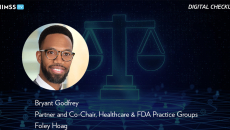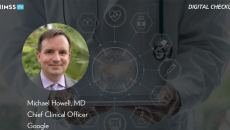AI regulation
Bryant Godfrey, partner and cochair of healthcare and FDA practice groups at Foley Hoag, discusses the various agencies regulating AI in healthcare, potential inconsistencies in frameworks and expectations for regulation in the coming year.
Sara Shanti, partner at Sheppard Mullin, discusses the intersection of healthcare and technology, how to establish trust and transparency within AI, and questions she receives pertaining to virtual therapy, particularly in mental health.
Brigid Bondoc, partner and life sciences attorney at Morrison Foerster, discusses government priorities pertaining to federal regulation of AI, where complications may arise, and concerns she has heard related to policy decisions.
Thomas Hallisey, HANYS digital health strategy lead, discusses appropriate regulations on digital health at the state and federal levels and the need for continuous management as technology moves from automating healthcare to augmenting it.
The American Medical Association uses “augmented intelligence,” not “artificial intelligence,” as the tech is meant to support, not replace, people, said Dr. Jesse Ehrenfeld, president of the AMA. Still, new regulatory paradigms are needed.
Dr. Michael Howell, Google's chief clinical officer, discusses what federal regulators should consider while configuring rules around AI use in healthcare and how the company ensures health equity within its medically tuned LLM, Med-PaLM.





